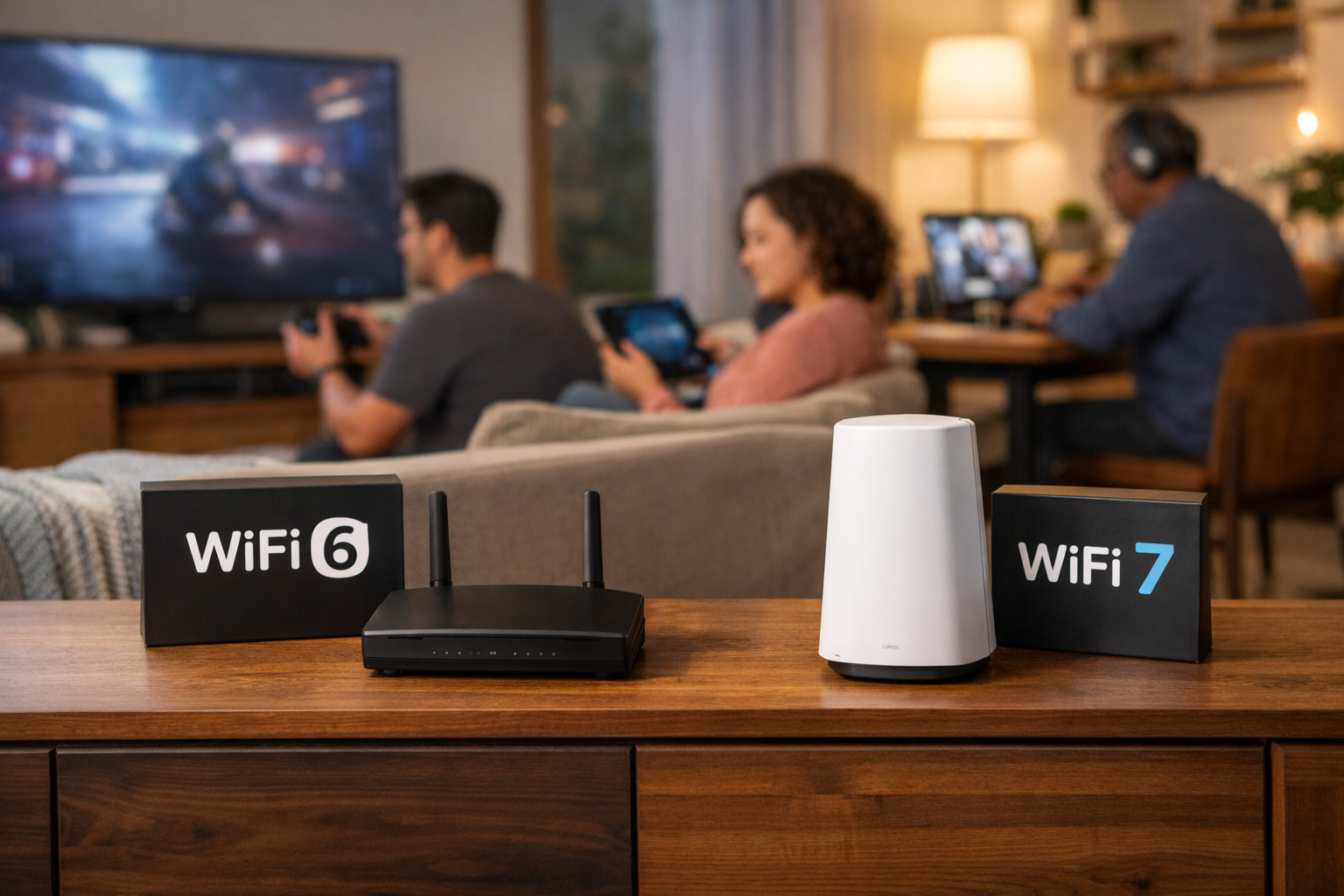Are you setting up a new internet connection or upgrading your equipment to take advantage of those incredible gigabit internet speeds you’ve heard about? You’ll typically be looking at two common devices to achieve the speed you need: a modem and a router. Both devices help connect your internet service, but each plays a different role in how you stream, work, play, and communicate online.
Let’s look at the difference between a modem and a router and whether you need a modem and a router.
What is a modem and what does it do?
A modem acts as a translator between your devices and an internet service provider’s (ISP) network, forming what’s called a wide area network (WAN). The modem turns the data you send into signals transmitted through your ISP. Incoming signals get translated into data your devices can understand. Installing a modem is pretty straightforward and only involves a few connections:
- A port that connects to your internet service (DSL, cable, or fiber)
- An Ethernet port that provides a connection for a single device
- A power plug
You can plug a computer with an Ethernet port into the modem to connect to the internet. But you’ll also need a router so you can connect to all the devices throughout your home.
What is a router and what does it do?
A router typically connects to multiple devices wirelessly (what we call Wi-Fi) and directs their data through the air back to the modem. That connection forms a local area network (LAN) of devices that can communicate with one another and share a single internet connection. For added protection, the router offers security features and settings that help you manage who can use your network. It can even allow you to block someone from your Wi-Fi.
Do I need a modem and a router?
Technically speaking, a modem on its own will provide you with internet access. But unless your home has only one stationary device connecting to the internet, you’ll want a router. While you’re working from home, others on your network may be streaming, gaming, or shopping online. Having a modem and a router will keep everyone connected.
Most ISPs provide a modem and router in a single device to save space. Some manufacturers also include the modem and router together to support different ISP services.
Choosing the right modem and router combination
Are you deciding between an integrated Wi-Fi modem vs. a router-modem setup? A combined Wi-Fi modem is a smart solution for smaller households with fewer devices. However, having a separate modem is better if your network is larger and more complex. A separate modem gives you more flexibility to choose the router that best suits your needs. For instance, as your network grows in complexity and square footage, a Wi-Fi mesh system can more effectively manage your data and devices, providing faster service for everyone.
How internet speed impacts your modem and router

Not all modems and routers are created equal—and neither are all internet connections. An outdated modem or router can prevent you from getting the best speeds your ISP can deliver. But think about it the other way around.
Having top-notch hardware won’t matter much if your internet connection is slow. That’s where a super-high-speed internet service like a fiber-optic network from Quantum Fiber can help. With speeds up to 940 Mbps—and even gig speeds—you’ll get the power your modem and router need to bring you a fast, reliable connection.
Content Disclaimer - All content is for informational purposes only, may require user’s additional research, and is provided “as is” without any warranty, condition of any kind (express or implied), or guarantee of outcome or results. Use of this content is at user’s own risk. All third-party company and product or service names referenced in this article are for identification purposes only and do not imply endorsement or affiliation with Quantum Fiber. If Quantum Fiber products and offerings are referenced in the content, they are accurate as of the date of issue. Quantum Fiber services are not available everywhere. Quantum Fiber service usually means 100% fiber-optic network to your location but, in limited circumstances, Quantum Fiber may need to deploy alternative technologies coupled with a non-fiber connection from a certain point (usually the curb) to your location in order to provide the advertised download speeds. ©2026 Q Fiber, LLC. All Rights Reserved. Quantum, Quantum Fiber and Quantum Fiber Internet are trademarks of Quantum Wireless LLC and used under license to Q Fiber, LLC.








